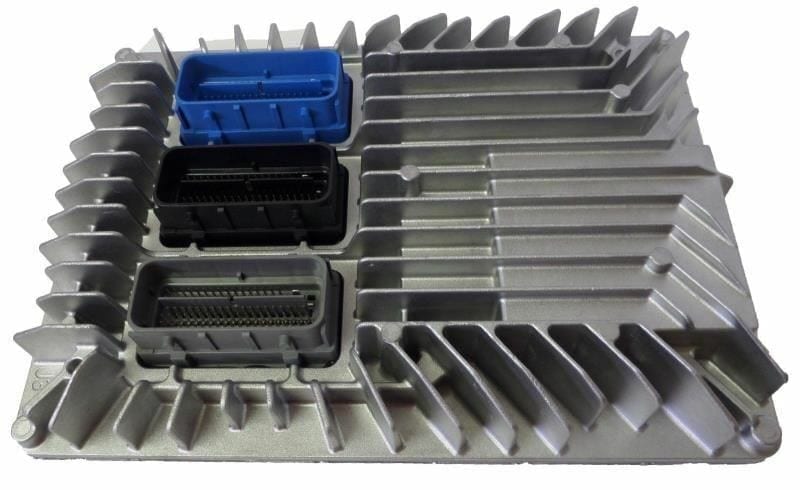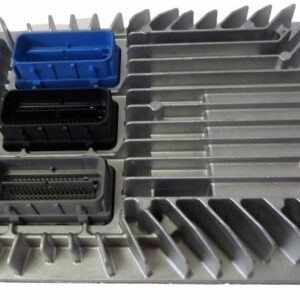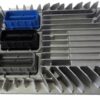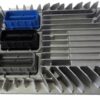Restore Your Orlando’s Brain and Get Back on the Road with Confidence
Is your 2012-2013 Chevrolet Orlando acting up? Unexplained stalling, a persistent Check Engine Light, poor fuel mileage, or erratic shifting can often point to one critical component: a failing Engine Control Module (ECM). As an automotive technician with over two decades of experience under the hood, I’ve seen firsthand how a faulty ECM can cause a cascade of frustrating and hard-to-diagnose issues. It’s the central computer for your engine, and when it starts to fail, your vehicle’s performance and reliability suffer.
This isn’t just a replacement part; it’s a complete, hassle-free solution. We take the guesswork and expensive dealership trips out of the equation. This genuine GM Engine Control Module, compatible with part number 12650256, comes professionally programmed with the latest factory software specifically for your vehicle. Simply provide us with your Vehicle Identification Number (VIN) after purchase, and we’ll handle the complex programming before it even ships. You receive a module that’s ready for a straightforward installation, restoring the precise fuel delivery, ignition timing, and emissions control your Orlando was designed for.
Case Study: A Tricky Diagnosis
I remember a 2012 Captiva Sport (which uses this same family of ECMs) that came into the shop with a random misfire on cylinder 3 (P0303) and a transmission that would occasionally slam into gear. The owner had already replaced the spark plug, ignition coil, and fuel injector for that cylinder, but the problem persisted. All sensor data looked normal on the scan tool. After hours of chasing wires, we checked the injector pulse with a noid light and found it was weak and inconsistent. The root cause wasn’t the injector itself, but the ECM’s driver circuit for that injector, which was failing intermittently. A new, correctly programmed ECM solved both the misfire and the harsh shifting immediately. It’s a classic example of how a failing ECM can send you down the wrong diagnostic path.
Common Signs of a Failing ECM
If you’re experiencing any of these symptoms, a faulty engine computer could be the culprit. A failing ECM can manifest in many ways, from obvious to subtle. Look out for:
- ✔ Check Engine Light is illuminated with codes like P0601 (Internal Control Module Memory Check Sum Error), P0606 (ECM/PCM Processor Fault), or U-series communication codes.
- ✔ The engine cranks but refuses to start.
- ✔ Unexplained drops in fuel economy.
- ✔ Noticeable hesitation or stumbling during acceleration.
- ✔ Engine stalling for no apparent reason, either while driving or at idle.
- ✔ Rough or erratic automatic transmission shifting.
- ✔ Failure to pass an emissions or smog test.
A Straightforward Guide to Installation
Replacing the ECM on your Orlando is a manageable job for a DIY enthusiast. With our pre-programmed module, you avoid the need for specialized scan tools. Always consult a repair manual for your specific vehicle, but here is a general guide:
- Safety First: Disconnect the negative terminal from your vehicle’s battery and secure it away from the post to prevent accidental reconnection.
- Locate the ECM: On the 2012-2013 Orlando, the Engine Control Module is typically located in the left-hand (driver’s side) of the engine compartment. It’s a silver box with multiple large electrical connectors.
- Disconnect and Remove: Carefully unlatch and disconnect the electrical harness connectors. They have locking tabs that need to be released. Once disconnected, unbolt the module from its mounting bracket.
- Install the New Module: Mount your new, pre-programmed ECM onto the bracket and securely tighten the bolts. Reconnect the electrical harnesses, ensuring they click firmly into place.
- Reconnect and Verify: Reconnect the negative battery terminal. Some vehicles may require a simple security relearn procedure (often turning the key to the ‘ON’ position for 10-15 minutes). Start the vehicle and check for proper operation and ensure the Check Engine Light is off.
Verified Vehicle Compatibility
This module is a direct replacement for multiple GM part numbers and fits a wide range of vehicles. Please verify your vehicle and original part number below. Our VIN programming ensures it works perfectly for your specific application.
Replaces Part Numbers: 12616889, 12630908, 12637106, 12642665, 12650256, 12651993
Fits Models Including:
- ✔ 2012-2013 Chevrolet Orlando
- ✔ 2012 Chevrolet Impala
- ✔ 2012 Chevrolet Captiva Sport
- ✔ 2012 Cadillac CTS (3.0L & 3.6L)
- ✔ 2012 Chevrolet Camaro (3.6L)
- ✔ 2010-2011 Buick LaCrosse (2.4L & 3.0L)
- ✔ 2011 Buick Regal
- ✔ 2010 Buick Allure (2.4L & 3.0L)
- ✔ 2010-2011 Cadillac SRX (3.0L)
- ✔ 2010-2011 GMC Terrain
- ✔ 2010-2011 Chevrolet Equinox
- ✔ 2010-2011 Saab 9-5 (2.0L)
Frequently Asked Questions
Do I really need to provide my VIN?
Yes, this is a critical step. Your VIN allows us to load the exact, correct GM software for your vehicle’s specific configuration, including engine, transmission, and emissions options. This ensures seamless integration and proper function without a trip to the dealer.
Is this a plug-and-play part?
Because we program it to your VIN, it is as close to plug-and-play as possible. In most cases, you can simply install it. Some GM vehicles may require a simple, tool-free security relearn procedure (like a key cycle) to sync with your vehicle’s anti-theft system.
Will this fix my check engine light?
If the Check Engine Light is caused by an internal failure of the ECM (common codes P0601-P0606), then yes, this part is the correct fix. However, it’s always best to have the codes professionally diagnosed to ensure the ECM is the true source of the problem and not a faulty sensor or wire.
What is the difference between an ECM, ECU, and PCM?
The terms are often used interchangeably. ECM (Engine Control Module) and ECU (Engine Control Unit) refer to the same part. PCM (Powertrain Control Module) is a term for a module that controls both the engine and the transmission. For your 2012-2013 Orlando, this part serves as the primary engine computer.
Is this a used part?
This is a high-quality, tested, and verified recycled OEM part. Each unit is inspected and then programmed with the latest software to ensure it meets or exceeds original factory performance standards, providing a reliable and cost-effective solution.



